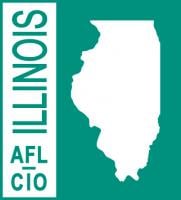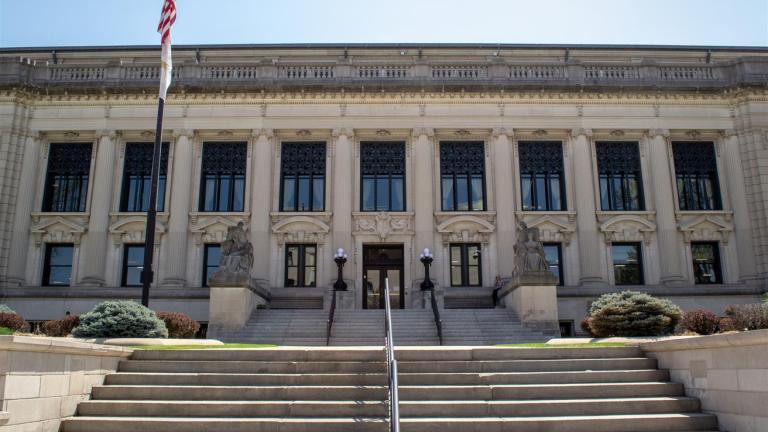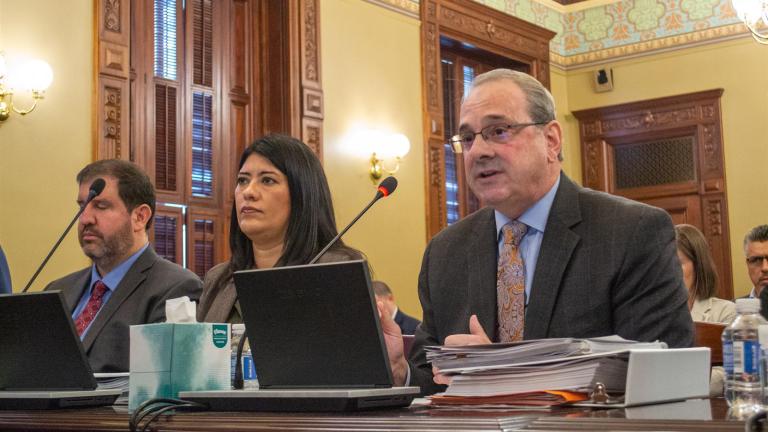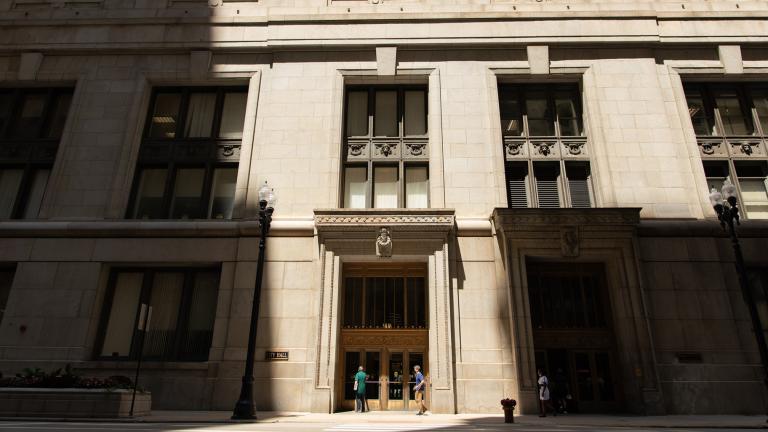The Illinois Supreme Court has struck down the state's landmark 2013 pension reform law, upholding a lower court ruling that it violated the state constitution. In the ruling, the court rejected the state's defense that its contractual obligations were not absolute, because it reserved "emergency powers" in a time of crisis.
The ruling states:
“The financial challenges facing state and local governments in Illinois are well known and significant. In ruling as we have today, we do not mean to minimize the gravity of the State’s problems or the magnitude of the difficulty facing our elected representatives. It is our obligation, however, just as it is theirs, to ensure that the law is followed. That is true at all times. It is especially important in times of crisis when, as this case demonstrates, even clear principles and long-standing precedent are threatened. Crisis is not an excuse to abandon the rule of law. It is a summons to defend it. How we respond is the measure of our commitment to the principles of justice we are sworn to uphold.”
The pension reform law, passed in 2013, attempted to solve the state’s $100 billion unfunded liability over the next 30 years, primarily by reducing retiree annual cost of living raises. The new formula for calculating yearly raises would cut pensioners who served the shortest time and earn the highest salaries the most, but would limit the cuts for those that have served the longest and earned less.
In November 2014, We Are One made the case that the new law violated the pension protection clause of the Illinois Constitution, which considers a pension an enforceable contract, the benefits of which “cannot be diminished or impaired.”
In a news release, the We Are One coalition said, “The pension protection clause of the Illinois Constitution is absolute and without exception. There is no merit to the State's purported justification for the unconstitutional diminishments and impairments that Senate Bill 1 imposes.”
But the state argued that it had emergency powers in a time of crisis that superseded that clause.
“The act represents a valid exercise of the state’s reserved sovereign powers to modify contracts and obligations,” Illinois Attorney General Lisa Madigan said previously.
In March, the Illinois Supreme Court heard the first round of oral arguments over the constitutionality of the pension reform law. Watch the full video below.
An Illinois Supreme Court ruling last summer, Kanerva v. Weems, held that state-subsidized health insurance for retirees was protected under the pension protection clause and could not be modified.
Sangamon County Court Judge John Belz’ ruling in November 2014 came on a motion for summary judgment as We Are One had asked for this case to be thrown out based upon the Kanerva v. Weems ruling.
Lawmakers seemed resigned in the wake of the Kanerva v. Weems ruling that the Supreme Court would likely reject the law, but they had hoped that the court’s opinion would offer a roadmap to acceptable reform.
But the opinion does not offer any suggestions as to what changes might be constitutional. It’s a complete rejection of the legislation.
“As we have already explained, there simply is no police power to disregard the express provisions of the constitution. It could not be otherwise, for if police powers could be invoked to nullify express constitutional rights and protections whenever the legislature (or other branches of government) felt that economic or other exigencies warranted, it is not merely pension benefits of public employees that would be in jeopardy. No rights or property would be safe from the State. Today it is nullification of the right to retirement benefits. Tomorrow it could be renunciation of the duty to repay State obligations.”
Senate President John Cullerton had argued from the beginning he didn’t think the law would uphold constitutional scrutiny. He supported a different measure that would’ve given members a choice between keeping health care benefits versus cost-of-living raises.
Mayor Rahm Emanuel had sought to shore up two of Chicago’s four pension systems with similar pension reform laws. Those also face lawsuits, and the survival of those reforms is unlikely given today’s ruling.
Read statements from legislators and organizations.
State Rep. Elaine Nekritz (D-Northbrook):
“Our goal from the beginning of our work on pension reform has been to strike a very careful, very important balance between protecting the hard-earned investments of state workers and retirees and the equally important investments of all taxpayers in education, human and social services, health care and other vital state priorities. In its ruling today, the Supreme Court struck down not only the law but the core of that balance. Now our already dire pension problem will get that much worse and our options in striking that balance are limited. Our path forward from here is now much more difficult, and every direction will be more painful than the balance we struck in Senate Bill 1."
Illinois AFL-CIO president Michael T. Carrigan issued the following statement on behalf of the We Are One Illinois coalition of unions that represent public employees and retirees:
“We are thankful that the Supreme Court has unanimously upheld the will of the people, overturned this unfair and unconstitutional law, and protected the hard-earned life savings of teachers, police, fire fighters, nurses, caregivers and other public service workers and retirees.
The Court’s ruling confirms that the Illinois Constitution ensures against the government’s unilateral diminishment or impairment of public pensions.
Because most public employees aren’t eligible for Social Security, their modest pension—just $32,000 a year on average—is the primary source of retirement income for hundreds of thousands of Illinois families. While workers always paid their share, politicians caused the debt by failing to make adequate contributions to the pension funds.
Public service workers are helpers and problem solvers by trade. With the Supreme Court’s unanimous ruling, we urge lawmakers to join us in developing a fair and constitutional solution to pension funding, and we remain ready to work with anyone of good faith to do so.”
The Illinois Policy Institute issued the following statement:
“Illinois’ political elite have devised a pension scheme that is excessive, bloated, corrupted and was never affordable for Illinois taxpayers. While Senate Bill 1 did not solve the pension crisis, the legislation at least took a first step toward achieving parity between government workers who receive pensions, and the taxpayers who fund them.
But with today’s ruling, the state's high court says that state government’s No. 1 financial responsibility is paying the retirement of people who no longer work for state government. Pension costs are first in line, ahead of funding for public safety, education, helping the poor and disadvantaged, and all core services provided by state government.
The court’s ruling suggested that raising taxes is a way to pay for pensions. Raising taxes will not fix a broken system. The pension system is beyond repair, and there will never be enough money to fund it. Case in point: The 2011 tax increase. That tax increase generated more than $31 billion, and 90 cents out of every $1 collected from the tax increase went to pensions. Yet it still was not enough to make the pension system whole.
Ultimately, the only way Illinois can break the cycle of siphoning more and more tax dollars and sacrificing more and more state programs to pay for pensions is to follow the lead of the private sector and move new employees to a 401(k)-style system. In the short term, it will not be surprising to see calls to change the state constitution or allow Illinois to file for bankruptcy.”
A spokesperson for Gov. Bruce Rauner issued the following statement:
“The Supreme Court’s decision confirms that benefits earned cannot be reduced. That’s fair and right, and why the governor long maintained that SB 1 is unconstitutional. What is now clear is that a Constitutional Amendment clarifying the distinction between currently earned benefits and future benefits not yet earned, which would allow the state to move forward on common-sense pension reforms, should be part of any solution.”
Mayor Rahm Emanuel issued the following statement:
“Since taking office, our goal has been to find a solution to Chicago’s pension crisis that protects taxpayers while ensuring the retirements of our workers are preserved -- something we achieved with Chicago’s pension reform for the Municipal and Laborers funds. That reform is not affected by today’s ruling, as we believe our plan fully complies with the State constitution because it fundamentally preserves and protects worker pensions rather than diminishing or impairing them. While the State plan only reduced benefits, the City’s plan substantially increases City funding which will save both funds from certain insolvency within the next ten to fifteen years and ensure they are secured over the long-term. Further, unlike the State plan, the City’s plan was the result of negotiation and partnership with 28 impacted unions to protect the retirements of the 61,000 city workers and retirees in these funds and ensure they will receive the pensions promised to them.”
Illinois House Republican Leader Jim Durkin issued the following statement:
“I respect the Illinois Supreme Court, but disagree with the ruling. I am prepared to continue working on meaningful legislative reforms to save our public pension systems.”
Civic Committee of the Commercial Club of Chicago President Ty Fahner issued the following statement:
“There are no winners today. If there’s any good news, it’s that Chicago and Illinois are resilient, and we’ve responded to great challenges before. The Civic Committee stands ready to work with Governor Rauner and the General Assembly to craft a bipartisan solution to rescue the state from financial collapse and restore Illinois as a compassionate and competitive state.”
Moody's Investors Service released the following statement:
"Moody’s is currently reviewing the Illinois Supreme Court pension reform decision and analyzing its potential impact on the credit condition of the State of Illinois, the City of Chicago, public universities, and other Illinois municipalities and school districts. For the state, Moody’s current rating and outlook did not factor in the proposed pension reforms, but the ruling provides additional evidence that pension benefit reductions will not be permitted."










